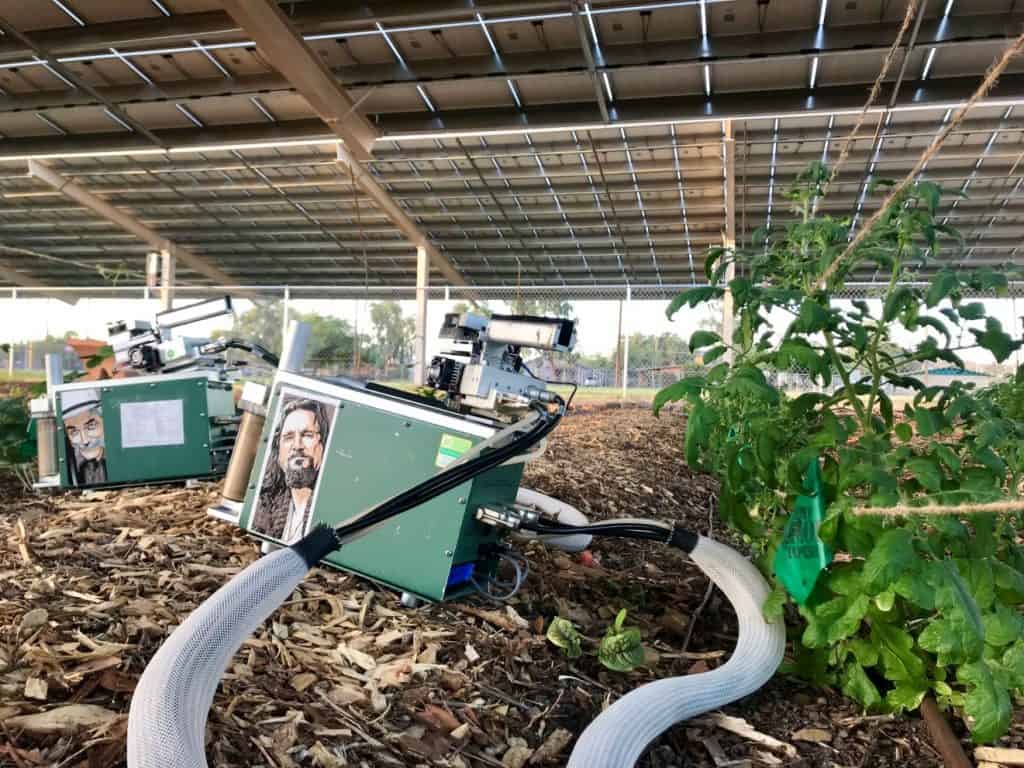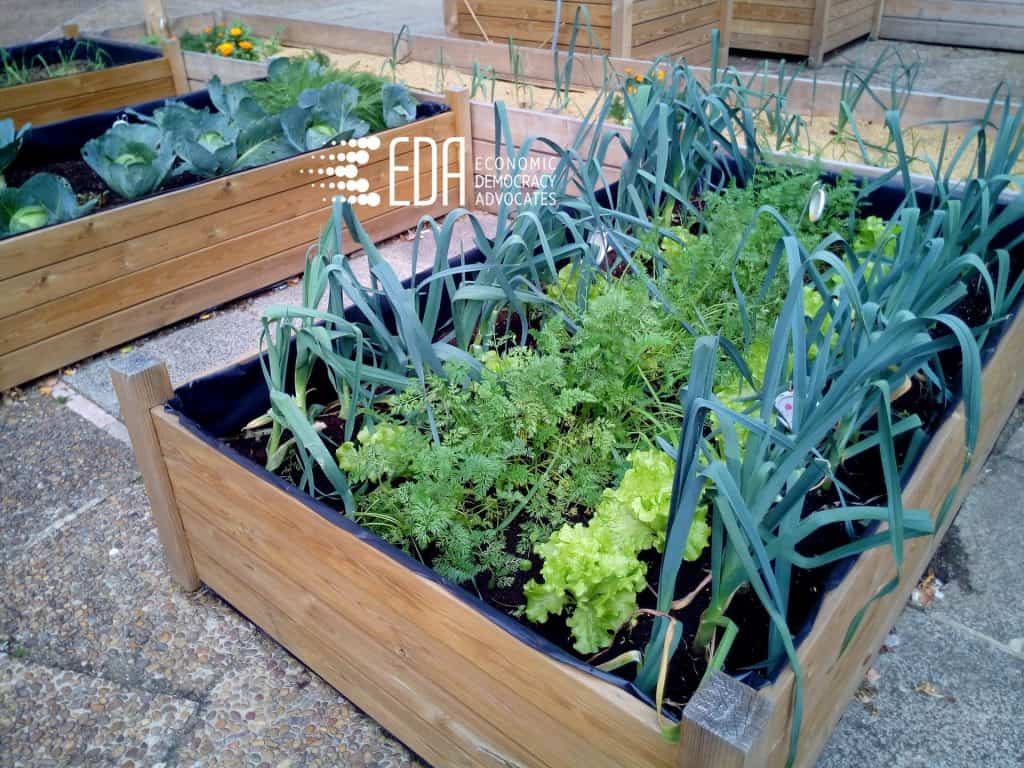Small towns and communities all over our country are constantly in a search for make-over, particularly those that have had their industrial base shut down, like Gasden, AL shown in this photograph. Gasden lost their major industries in the 1970’s and 1980’s, and was forced to take steps for revitalization. After decades of struggle, Gasden finally is recovering, although unemployment is a continuing issue.
The experience in Gasden has been reproduced nationwide, often with less success than Gasden. The article here explores the story of Viroqua, WI, a town just like Gasden. Viroqua decided to create a community center around food, and in doing so, they have recovered almost two-thirds of the jobs lost when their industrial base left.
Many of the stories we present to you in our blog are intended to give ideas for how you can take action in your own communities. Whether you live in a densely populated urban area, or in small towns like Gasden and Viroqua, you can make a difference! Use the stories shared here of Viroqua, or Harlan, IA, or Corbin, KY as your role model to change your community. It takes a spark of inspiration and a lot of hard work, but your efforts to create a sustainable community will be greatly rewarded every day.


Bourbon barrel aged maple syrup from B & E’s Trees
When the point-of-sale giant NCR decided to shutter its Viroqua, Wisconsin, factory in January 2009, 80 or so jobs disappeared, and the town of 4,300 joined the ranks of rural communities left reeling by the downturn.
But rather than wallow and complain about tough luck, a group of residents assessed local strengths and turned a 100,000-square-foot sob story into the Food Enterprise Center, a buzzing hub of food-focused entrepreneurship. Fourteen tenant businesses provide around 50 jobs in the former NCR factory, turning veggies into fermented snacks, brewing craft sodas, roasting organic coffee beans, aging maple syrup in bourbon barrels and distributing local produce to institutional buyers like the Mayo Clinic Health System and the University of Wisconsin.

And Viroqua is hardly the only example of a rural community reversing declining fortunes with food. Corbin, Kentucky, revitalized its downtown over the past five years by leveraging a popular weekly farmers market and supporting the growth of Main Street restaurants and cafes. As a result, the Appalachian hamlet has seen commercial traffic spike and its downtown storefront vacancy rate fall from 40 percent to nearly zero.

An aerial shot of the Vernon Food Enterprise Center. Source Raymond Siler/Kickapoo Coffee
The Harlan, Iowa, chamber of commerce spent years trying to lure tech firms to its incubator space before a 20-something entrepreneur named Ellen Walsh-Rosmann walked in three years ago with a proposal: turn the 6,000-square-foot building into the headquarters of FarmTable, her growing local-food procurement and delivery business. “We kind of started from nothing,” Walsh-Rosmann says. Now the business works with three dozen farms and sells about $500,000 of locally grown food annually, supplying produce to 30 Hy-Vee grocery stores and numerous restaurants in the Omaha and Iowa City metro areas. Walsh-Rosmann and her family also opened their own restaurant, Milk & Honey, and, between the two businesses, they now employ around 15 people.
 Moreover, by creating new markets, Walsh-Rosmann’s enterprises have invigorated the region’s sustainable-farming community. At a time when many of Iowa’s small farms are disappearing, FarmTable’s producing partners are scaling up and hiring. “It’s had a significant impact,” says Gene Gettys Jr., Harlan’s city administrator. “Ellen’s business is right at the heart of our region. Nothing better demonstrates the value of agriculture to the local economy.”
Moreover, by creating new markets, Walsh-Rosmann’s enterprises have invigorated the region’s sustainable-farming community. At a time when many of Iowa’s small farms are disappearing, FarmTable’s producing partners are scaling up and hiring. “It’s had a significant impact,” says Gene Gettys Jr., Harlan’s city administrator. “Ellen’s business is right at the heart of our region. Nothing better demonstrates the value of agriculture to the local economy.”
Up in Wisconsin, Viroqua and surrounding Vernon County found that out back in the 1980s, when the region’s economy relied heavily on tobacco farming. As government subsidies disappeared and tobacco prices faltered, farmers turned to new crops and different business models. Some tapped into the area’s significant “back to the land” population and formed a cooperative crop pool for organic produce. This being Wisconsin, organic milk production soon followed. The region now has one of the highest concentrations of organic farms in the country and is home to Organic Valley, one of the biggest organic food businesses on the planet.
That was the competitive advantage that Viroqua leveraged to bootstrap another revival. “We took a challenge and turned it into an opportunity,” says Sue Noble, the director of the nonprofit Vernon Economic Development Association, which owns and operates Viroqua’s Food Enterprise Center. “We do food here, and [I figured] if we created a center around that, it would probably be successful.”
 According to Noble, the Food Enterprise Center plows all of the revenue it generates from rents back into maintaining and improving the facility. She also uses the center’s nonprofit status to chase grants and pursue creative financing that might not be available to her for-profit tenants. After Noble helped secure $80,000 for new bottling equipment in 2013, the craft-soda upstart Wisco Pop! increased its sales by 400 percent, according to founder Austin Ashley. Previously available only in a few local outlets, Wisco Pop! is now sold at fancy food retailers and beverage purveyors across the Midwest. “I was filling up kegs and running them around to restaurants,” Ashley says. “I couldn’t do this without [Noble]. I had a good idea, but she helped me accomplish it.”
According to Noble, the Food Enterprise Center plows all of the revenue it generates from rents back into maintaining and improving the facility. She also uses the center’s nonprofit status to chase grants and pursue creative financing that might not be available to her for-profit tenants. After Noble helped secure $80,000 for new bottling equipment in 2013, the craft-soda upstart Wisco Pop! increased its sales by 400 percent, according to founder Austin Ashley. Previously available only in a few local outlets, Wisco Pop! is now sold at fancy food retailers and beverage purveyors across the Midwest. “I was filling up kegs and running them around to restaurants,” Ashley says. “I couldn’t do this without [Noble]. I had a good idea, but she helped me accomplish it.”
Spend enough time in Viroqua, and it becomes evident that this isn’t just another small town in the middle of nowhere. The local farm boys still gun their pickups when they cruise Main Street, but at the new Kickapoo Café, baristas serve light roasts and pour-overs to the kind of hipster clientèle usually found in Bushwick or Logan Square. Every Friday night, the Rooted Spoon, a local caterer, transforms its space on Main Street into a cocktail bar, serving $8 mescal margaritas and fish tacos. Chef Luke Zahm, proprietor of the Driftless Café, was a 2017 semifinalist for the James Beard Award. A local, Zahm returned to the area so he could cook in what he calls “the mecca of organics.”

Viroqua’s turnaround plan, though, didn’t happen overnight, and it certainly won’t work everywhere, says Patty Cantrell, founder of Regional Food Solutions, a Michigan-based consultancy specializing in community economic development and local foods. Invoking horticulture, Cantrell says mimicking Viroqua’s success requires “good soil.” By that she means a concentration of like-minded entrepreneurs and consumers, assets like farmers markets, food coops and community kitchens.
Perhaps most importantly, Viroqua-style success demands open-minded community leaders with the willingness to support a different kind of startup and the patience to let niche food concepts mature into local economic drivers. “We create innovation centers for high-tech industries, and cool things happen when they’re shoulder to shoulder and sharing ideas,” Cantrell says. “You can do that with this sector too. That’s what you see in Viroqua.”
Article written by Joe P. Hasler
Originally published by OZY


